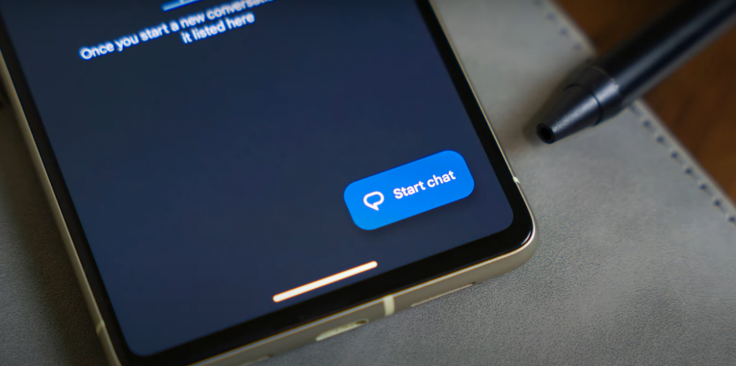
Rich Communication Services (RCS) will allow iPhone users to enhance their texting skills later this year. However, a significant problem currently exists that may affect how Android and iPhone users interact with RCS. The main RCS app for Android smartphones, Google Messages, has come under fire for how it handles image quality.
Even with settings adjusted to disable image compression, Google Messages continues to significantly reduce the resolution and file size of photos sent via RCS. This compression can diminish a 50MP image to as low as 1.9MP, undermining the promise of high-resolution media sharing that RCS aims to deliver.
Image Compression Woes
The ability for Android and iPhone users to smoothly share high-resolution media is one of the notable advantages that RCS will provide. However, Google Messages, despite recent updates, continues to compress images significantly. Even with the "Send photos faster" setting turned off, which was intended to mitigate compression, users report substantial reductions in image quality.
Tests reveal that images sent through Google Messages can see reductions from their original 50MP resolution to a mere 1.9MP, with file sizes shrinking by up to 98%. This level of compression not only compromises the visual integrity of photos but also challenges Google's ability to showcase Android's camera capabilities effectively to iPhone users.
Comparative Performance with Apple Messages
In stark contrast, Apple Messages, which will soon support RCS on iPhones, does not exhibit the same level of image compression. Testing has shown that photos sent via Apple Messages retain their original resolution and megapixel count, ensuring that iPhone users receive images as they were intended by the sender. This disparity in image quality underscores a potential disadvantage for Android users relying on Google Messages for RCS-enabled communication.
Implications for User Experience
The impact of Google Messages' image compression issue extends beyond technical specifications to user perception and experience. With iPhone users accustomed to seamless, high-quality media sharing through iMessage, the prospect of receiving heavily compressed images from Android counterparts could perpetuate existing biases against Android device capabilities. This scenario poses a significant challenge as Google aims to position RCS as a competitive alternative to iMessage's robust features.
As RCS rollout on iPhones approaches, the onus is on Google to address these concerns promptly. Failure to resolve the image quality issue could not only hinder adoption among iPhone users but also reinforce negative perceptions about Android devices' camera capabilities. Google's response will be critical in shaping initial impressions and ensuring RCS's success as a universal messaging standard.
While the advent of RCS on iPhones promises enhanced cross-platform communication, the current limitations in Google Messages' image handling highlight a crucial area requiring improvement. As RCS prepares to bridge the gap between Android and iPhone users, the disparity in image quality between Google Messages and Apple Messages could significantly impact user perception and adoption. Google's struggle to maintain image integrity despite disabling compression settings raises questions about its ability to compete with iMessage's seamless media sharing, which has long set the standard for iOS users.
Looking ahead, the upcoming months will be critical for Google to address these challenges effectively. It is self-explanatory that the RCS on iPhones is only possible due to the technical aspects but, maintaining the user interface identical on different platforms.
Thus, by improving the proficiency in image processing in Google Messages, Google can prove that it is ready to provide users with the messaging service they all need that can satisfy iPhone and Android device owners. It also emphasizes the need to have strong cross media capability but more importantly the level of competition evident in messaging services in this case where a user's experience may well determine their loyalty and uptake of a particular platform.
Related Article : Apple Introduces RCS Messaging Support In IOS 18, Promising Enhanced Cross-Platform Communication
© Copyright 2025 Mobile & Apps, All rights reserved. Do not reproduce without permission.
















